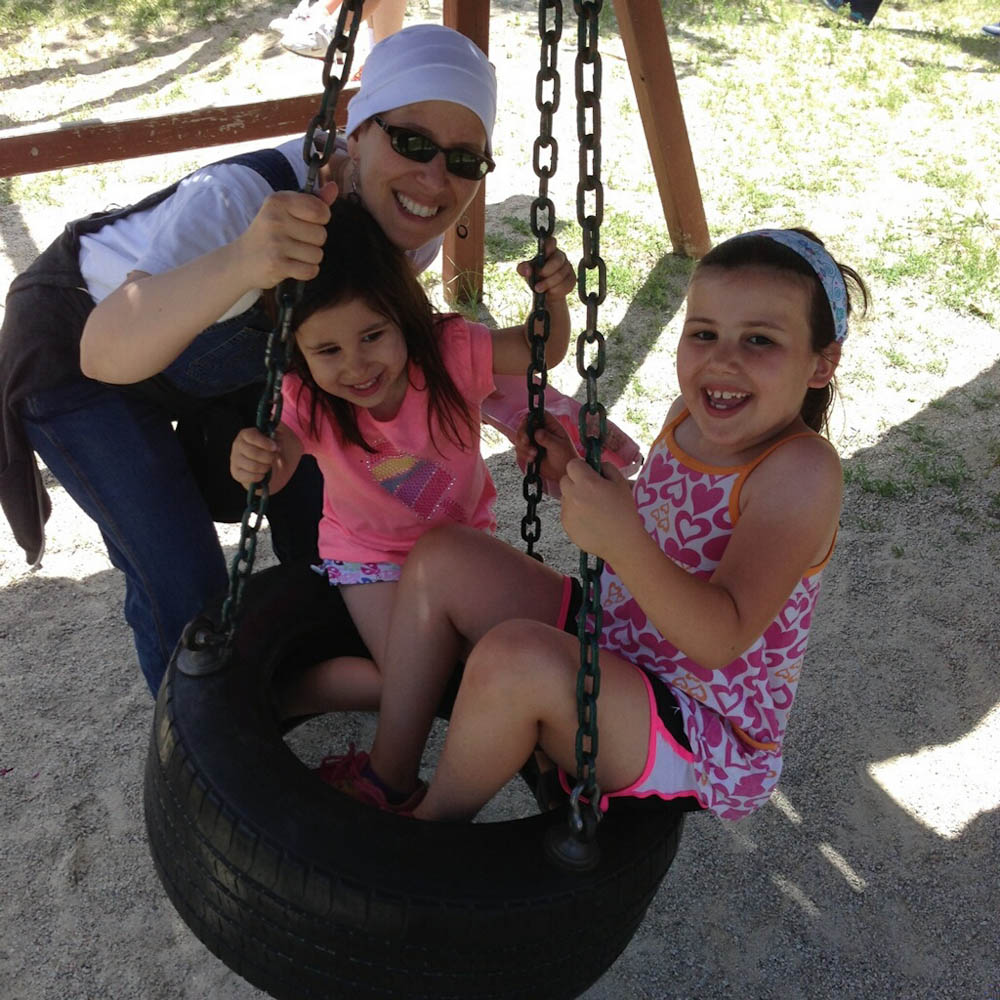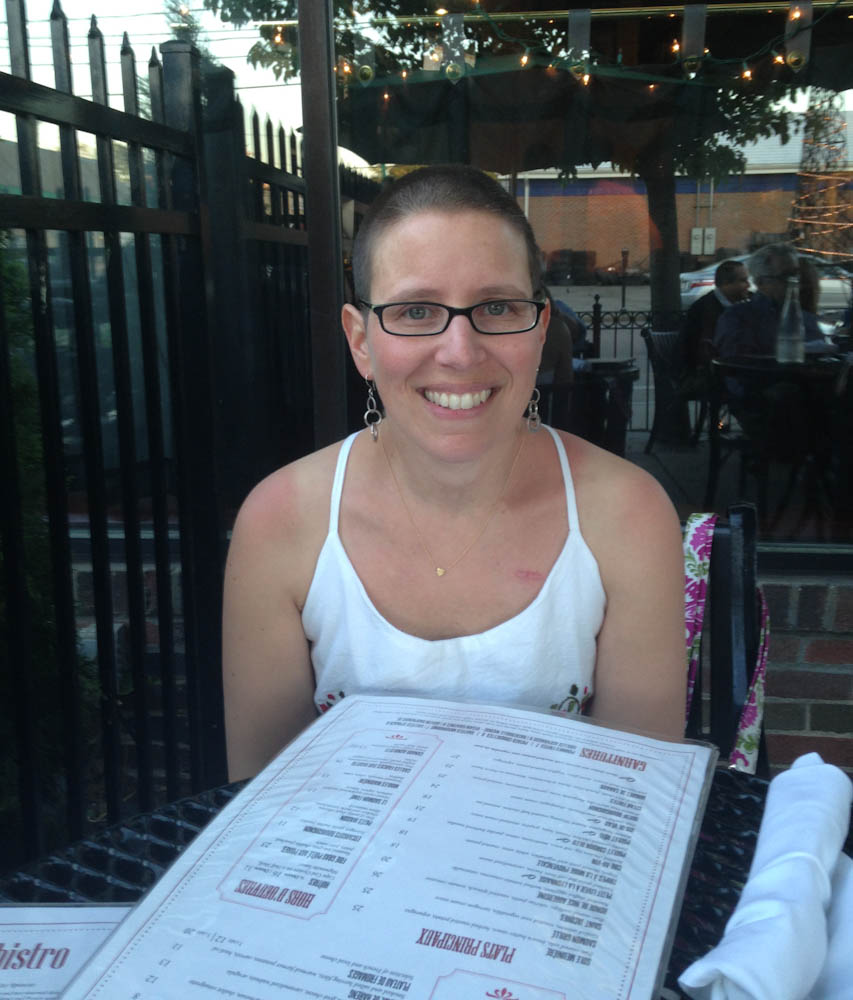By Gabby Spear
When my doctor first told me I had breast cancer, there was almost no time to take it in. I called my husband Andy, told him, and then had to go pick up our older daughter, Emma, at after school care. We were going to temple for Friday night services, and as I was settling Emma and Molly in at the synagogue I was also calling my sister with the news.

Right away, I learned a powerful lesson: even at the outset of your diagnosis, the world doesn’t stop. Life goes on and you need to go on yourself, especially if you’re the parent of 3- and 6-year-old children. It’s not about you, it’s about them: making sure they feel comfortable and safe and loved no matter what is happening around them.
Andy and I purposely waited to tell our children until I had my treatment plan mapped out about a month after my diagnosis. We wanted to be able to say this is what I have, this is what it means, and this is what we are going to do about it. Emma, especially, is very curious, and I knew she would have a lot of questions.
Along with my good friends, my social worker at Dana-Farber’s Susan F. Smith Center for Women’s Cancers was wonderful in helping me through this, and got me the backpack full of helpful materials from DFCI’s Family Connections Program. In the end I told them, “There are good cells and bad cells in your body, and sometimes the bad cells take over the good cells. We need to get rid of the bad cells with medicine called chemotherapy, and because the medicine can also kill good cells, I’m not going to feel good when I get it. You can help by giving me hugs, reading me stories, and playing games with me.”
Then Emma asked me the question I had been waiting for: “Are you going to die?”
Read more:
My primary oncologist Ann Partridge, MD, MPH, and my entire Dana-Farber care team helped me prepare for this moment. They helped me understand that you’re not supposed to say “yes” or “no” because you don’t want your kids thinking down the road that you lied to them, and you never do know the outcome. So I told them, “I have the best doctors, and they are going to do everything they can to make me better.”
During the next year, as I went through chemo, being on a clinical trial, and having operations to remove my breasts and ovaries, our girls heard words like “mammogram” and “chemotherapy” from us as much as they heard “sandwiches” and “school.” For Emma, the biggest focus was when and for how long I would lose my hair; for Molly, things were more day-to-day – she just wanted to know when I would be home or able to play with her. Andy and I found that being open and honest with them really worked great for us.

The environment where I was treated made this and everything easier. The minute I walked into Dana-Farber, I was at ease. The color and warmth and every interaction I had — from the people checking you in to the practitioners – felt so caring and always professional. There was no feeling I was in a hospital. There was an ease to it, a comfort to it.
I loved the idea that Dana-Farber was so in tune to treating the whole person, and not just the cancer. From the time a volunteer gave me a hand massage during treatment, I took advantage of everything I could. I did acupuncture, used nutritional services to help with my food allergies, nausea, and other challenges, and met with Dr. Sharon Bober to discuss sexual health after a cancer diagnosis.
I had my last chemo treatment in August 2014 and my last surgery in November. Around that same time I joined the Adult Patient and Family Advisory Council (PFAC) at Dana-Farber. For me, being able to give back is a way to help effect change. By taking part in a clinical trial, and as a member of the PFAC, I can help increase the chances that my daughters and other children growing up today have a better future.

Very impressive my advice, telling children and teenagers about your cancer can be daunting. But, as a parent, you know your child best. You’ll understand their reactions and know what support they need. Being honest, specific and using simple language is usually a good approach. What they’ll need to know and how they will react will depend on their age. Drawings or books may help younger children understand, while you may need to encourage teenagers to ask questions.
What a strong Mom! I handled it the same when I was diagnosed with colon cancer 7 years ago, when my kids were 12. Being older, they asked a LOT more questions and wanted more specifics. The biggest mistake you can make is lying or avoiding your children’s concerns. They have emotions too and deserve to express them. Best of health to you, and congrats on the advocacy role you are now taking!!